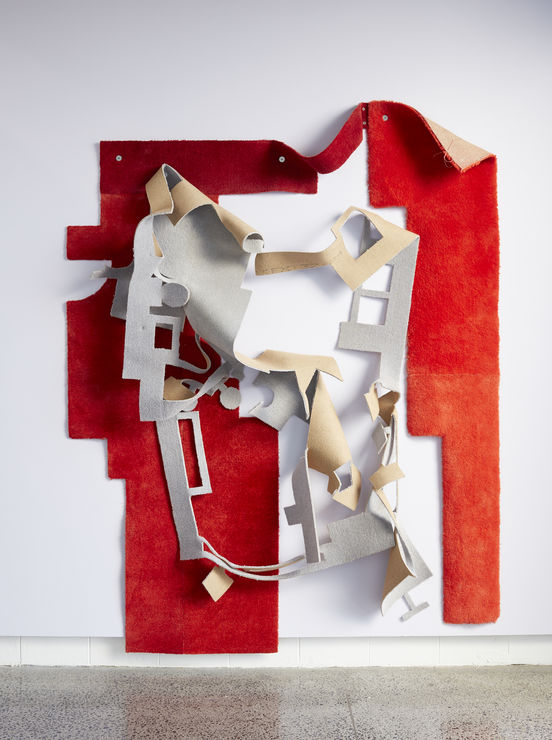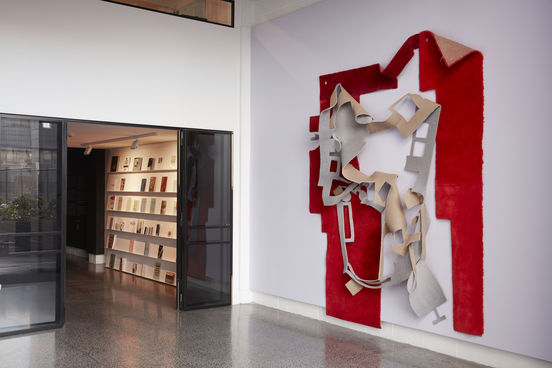Part of an on-going series of sculptures that re-present architectural floorplans utilising pieces of remnant carpet. Happy Together draws its form from architectural plans for a co-living complex in New York.
Although yet to be introduced to New Zealand, the contemporary concept of co-living is gathering popularity in cities worldwide as a solution to housing shortages and the increasing pressures on urban environments. Marketed as a new innovation which contemporises ideals of communal living and shared cohabitation for young professionals, co-living reduces private apartment space to as little at 10m2, with other facilities and communal spaces shared among residents.
In an article for website Failed Architecture Matthew Stewart observes this “new way of living”, is in fact “a commodified old way of living; one that is steeped in the language of modernism yet robbed of its radical social intent.” Utopian visions of the 20th century modernist avant-garde, saw designers and architects seek uncompromising solutions to improving society through the objects and architecture they designed and made. In the inter-war years, groups such as the Modern Architectural Research Group (MARS) in Britain, and Czech architectural theorist Karel Teige (author of The Minimum Dwelling, 1932) also experimented with collective housing. It could be argued that their aims were much more egalitarian than developments in this field today.
Appropriating the floorplans from Common – a new co-living start up based in New York – in assembled pieces of salvaged and hand dyed carpet. The work is wall mounted, using the material’s weight to create its final limp and drooping form. Here Lillico creates abstracted forms inspired by the scale and form of a problematic contemporary architecture. Happy Together embodies the discord between the profitability of scarce inner city square meterage, and the marketable benefits of personal fulfilment and enhanced social structures that this design intervention might deliver.
---
Kirsty Lillico lives and works in Wellington. She received a Master of Fine Art from RMIT University, Melbourne in 2008 and also holds a Bachelor of Design, Victoria University and a Diploma of Fine Art, Otago Polytechnic.
Lillico has exhibited widely throughout New Zealand and in Australia. Recent exhibitions include Vicious Circles at Toi Poneke Wellington, State Block at Frontbox, St Paul St Gallery and Dormitory at Rear Window, Dunedin Public Art Gallery and Demented Architecture at City Gallery Wellington. In 2017 she was awarded the Parkin Drawing Prize for her work State Block.


Kirsty Lillico, Happy Together, 2018. Image: Samuel Hartnett.